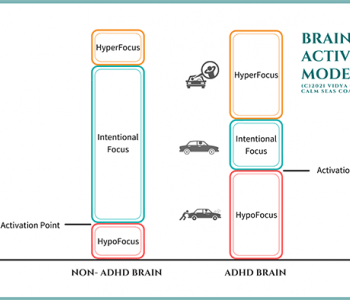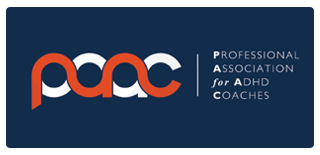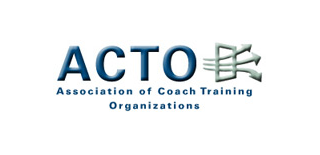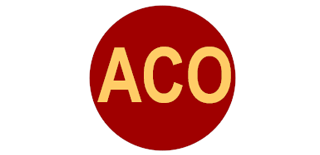The Many Faces of ADHD: Teens
ADHD Education
ADHD Awareness Month - The Many Faces of ADHD: Teens*
“I have ADHD…..so what?” In many ways, “so what” is right. In most ways, you are just a regular teen, with all the ups and downs that come with being a teenager. In other ways, growing up with ADHD (attention-deficit/hyperactivity disorder) presents some unique challenges.
I’m not a kid anymore – ADHD in the Teen Years
The main symptoms of ADHD – inattention, hyperactivity, and impulsivity – remain the same during your teens as they were when you were younger. However, you may notice some differences. On one hand, you may struggle less with hyperactivity now. On the other hand, you may notice greater challenges with schoolwork and other responsibilities.
Teens with ADHD may have difficulty with a set of skills known as “executive functions,” which allow you to plan for goals and consequences, evaluate your progress, and shift plans as necessary. Sound familiar? In adolescence, your parents and teachers expect you to start doing these things more independently, and sometimes that transition can be tough on you and those around you.
Why me? – Causes of ADHD
ADHD runs in families and it’s not your fault! Just like most kids are right-handed, but some are left-handed, some kids have ADHD, too. ADHD is a brain-based disorder. There is no known “cure” but there are many ways to manage it.
Is it only ADHD?
Up to 60 percent of children and teens with ADHD also have to deal with other commonly co-occurring conditions. These include:
- Disruptive behavior disorders, which can affect how you act. Specific ones include Oppositional Defiant Disorder and Conduct Disorder.
- Mood disorders, which can affect how you feel. They include bipolar disorder and depression.
- Anxiety disorders, which may be present in as many as 40% of teens with ADHD.
- Substance abuse. This is a significant concern of many parents and teens.
- Learning and communication problems, which may become obvious with the added demands of middle and high school.
- Sleep disturbances.
What does ADHD feel like?
You may experience feelings of rejection by others or embarrassment because of your diagnosis. You may also wish to believe your symptoms of ADHD have lessened or disappeared. You may have difficulty feeling good about yourself. If you feel this way, remember, you are not alone and you can feel better. Talk with a parent, another trusted adult, or health professional about how you feel. Participate in activities you enjoy and recognize that everyone has different strengths and weaknesses.
How can ADHD affect me?
- Academic Performance: The amount and difficulty of work increase in high school. You may benefit from help with study skills, and organization/time management. Students whose ADHD symptoms impair their school functioning may qualify for classroom accommodations. These can include extra time on tests, taking tests in place where distractions are minimized, or additional organizational support. Work with your parents and school if you think you need this kind of help.
- Social Functioning: As a teen, you know how important friendships are, but teen relationships aren’t always easy to navigate. You may notice that you are more easily frustrated or sensitive than others your age – this is common for teens with ADHD. Structured activities like sports, clubs, or youth groups can provide you with a social group and positive experiences.
- Home Functioning: Households of adolescents with ADHD have higher levels of parent-teen conflict than others. This is because the difficulties with organization, forgetfulness, and impulsivity that commonly go along with ADHD may make your parent(s) hesitant to give you the freedoms you desire. Also, many teens with ADHD have more difficulty completing homework and chores on time or following other rules. This can be frustrating for both you and your parent(s), and may lead to lots of arguing back and forth. Discussing issues when you are angry is never effective. Instead, set aside a time to talk when everyone is calm. If things get tough, you and your parents may consider seeking help from qualified mental health professional.
- Driving: Getting your driver’s license is exciting but inattention and impulsivity can cause problems. Drivers with ADHD have more tickets and are involved in more accidents. Stimulant medications may improve driving performance. Always follow safe driving habits: use a seat-belt, observe the speed limit, don’t eat while driving, and don’t get distracted by your cell-phone. Never text and drive!
- Taking Medication: Many teens decrease their use of ADHD medication during their adolescent years. This occurs for many reasons. You may not like taking medicine, you may feel you don't need it, or you might just want to see how you do without it. If you and your parents wish to stop medication, consult with the doctor and start with a “trial period” for doing so. Develop a plan to manage your goals during this time and pay close attention to how you feel. Make sure to specify what circumstances (e.g., falling grades, more arguments at home) may serve as clues that you should start taking medication again.
So what can I do about it? – Treatment
Treatment involves managing the symptoms, and for this education is a key tool. Ask your treatment providers questions, and express concerns if you have them.
The most common treatment for teens with ADHD combines medication and psychosocial interventions. This is known as the multi-modal approach.
Medications may have to be adjusted if you have additional conditions to the ADHD. Psychosocial interventions include parent-teen training in problem-solving and communication skills and parent training in behavioral management methods.
What about my future?
It’s estimated that somewhere between 1.4 million and 2.3 million youths in the US have ADHD, so you are not alone. ADHD doesn’t have to get in the way of living the life you want. Countless teens just like you have grown up to pursue their passions, live happy lives, and be successful in their work.
They’ve found this success because they’ve taken the time to learn how ADHD affects them, and taken charge of a treatment plan that works for them. You can do it too!
* Adapted from What We Know # 20A: ADHD and Teens – Information for Teens, National Resource Center on ADHD: A Program of CHADD (NRC). The NRC is supported through Cooperative Agreement Number CDC-RFA-DD13-1302 from the Centers for Disease Control and Prevention (CDC). The contents are solely the responsibility of the authors and do not necessarily represent the official views of CDC.
Sponsored by:
- ACO
- ADDA
- ADDitude
- CHADD
- National Resource Center on AD|HD












